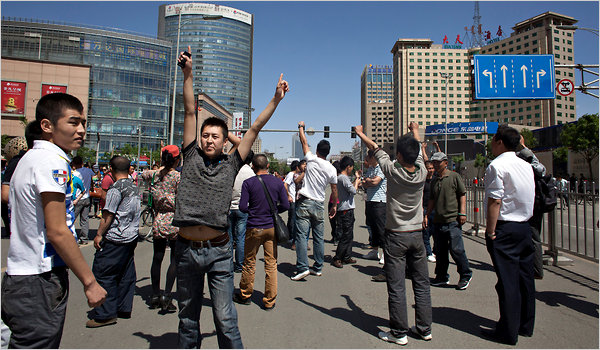Japan, Mongolia affirm closer economic ties via free trade pact

The Japan Times | 22 October 2015
Japan, Mongolia affirm closer economic ties via free trade pact
ULAN, BATOR – Prime Minister Shinzo Abe and Mongolian Prime Minister Chimed Saikhanbileg agreed Thursday to advance economic cooperation between the two countries on the back of a free trade agreement signed earlier this year.
Speaking at a joint news conference in Ulan Bator, Saikhanbileg said Mongolia completed legal procedures the same day, paving the way for the FTA, signed in February, to take effect possibly this coming spring.
Abe welcomed the move, saying Japan “would like to cooperate for Mongolia’s development.” The Japanese government won parliamentary approval for the FTA during a regular Diet session that ended last month.
Japan’s increased economic cooperation with Mongolia appears to be aimed at countering China’s rising clout in the country, especially when Mongolia’s economy — heavily dependent on the mining industry — has been facing difficulties due to slumping natural resource prices.
Saikhanbileg said he and Abe also agreed to cooperate on infrastructure development in Mongolia, including developing the Tavan Tolgoi coal mine, a major project in the country’s south.
Referring to bilateral security cooperation, Abe said he won Mongolia’s backing for a greater role by Japan’s Self-Defense Forces abroad under new security laws.
Abe called for continued strategic dialogue involving the two countries and the United States.
“Sharing basic values, Japan and Mongolia are important strategic partners,” he said.
Given that Mongolia has diplomatic relations with North Korea, Abe asked for Ulan Bator’s cooperation in addressing Pyongyang’s abductions of Japanese nationals in the 1970s and 1980s.
The abduction issue has prevented Japan and North Korea from normalizing diplomatic relations.
Abe became the first Japanese prime minister to visit Mongolia twice while in office. He last traveled to Mongolia in March 2013.
After holding separate talks with Saikhanbileg and Mongolian President Tsakhiagiin Elbegdorj, Abe departed for Turkmenistan on the second leg of a six-nation tour that will also take him to Tajikistan, Uzbekistan, Kyrgyzstan and Kazakhstan.
Some experts argue the weeklong trip is apparently intended to counter the growing influence of China, with its economic might, in the resource-rich region.
Abe will become the first Japanese prime minister to visit all five Central Asian countries.
In August 2006, then Japanese Prime Minister Junichiro Koizumi traveled to Kazakhstan and Uzbekistan.





